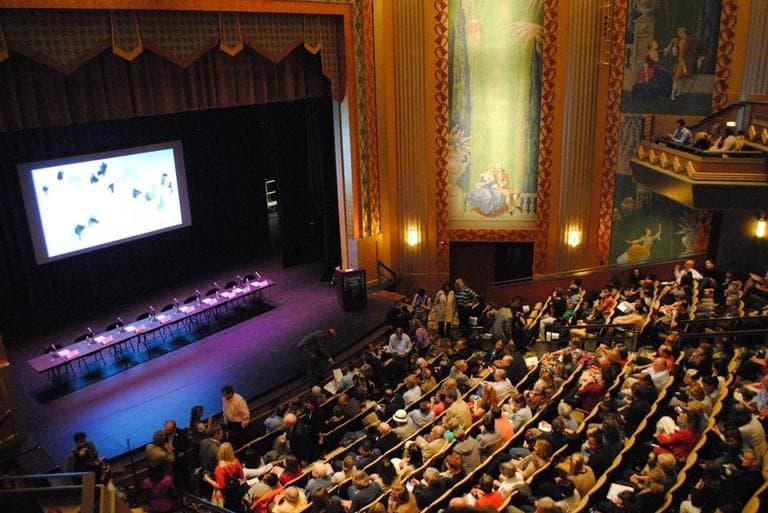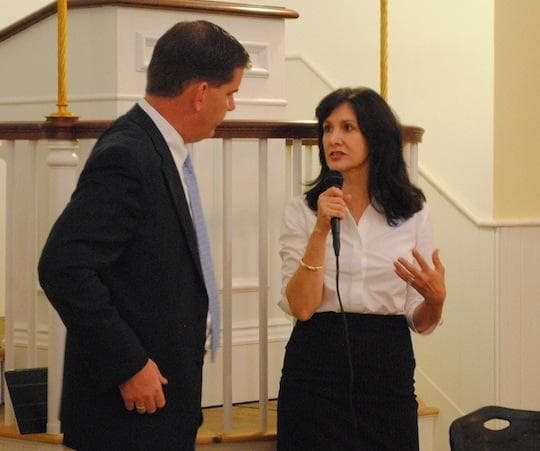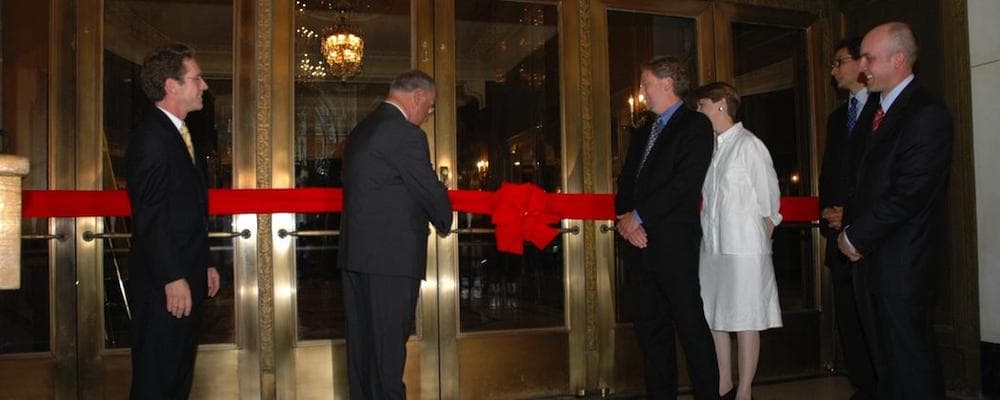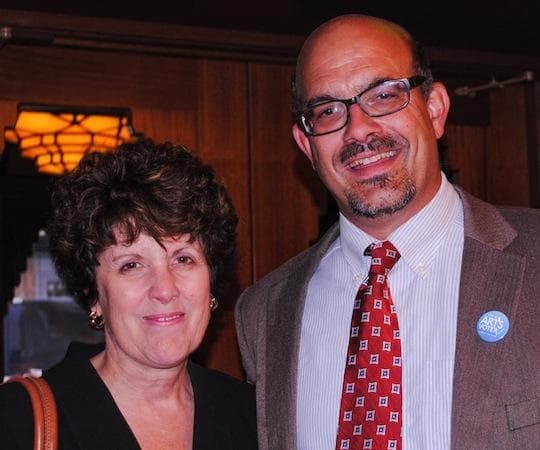Advertisement
Matt Wilson, MassCreative Get Arts A Seat At The Table
BOSTON — MassCreative, a statewide advocacy group established last year, has been drawing impressive notice during the Boston mayoral election. Its focal point has been Create the Vote, a grassroots effort to identify and inspire “arts voters,” and make sure arts and culture are part of the candidates’ platforms.
Ahead of Tuesday's Election Day, we sat down with Matt Wilson, a longtime community activist, public advocate and campaign manager who was hired as executive director of MassCreative in March 2012, to talk about the race and some of the challenges ahead. The interview has been edited and condensed.

Maureen Dezell: MassCreative seemed to burst on the scene during the mayoral preliminary. You were an unknown, a fledgling organization, and in early September you managed to pack the Paramount Mainstage for a forum with nine mayoral candidates. How many people went to that?
Matt Wilson: 600. We had to turn 75 people away. As far as we know, it was the largest campaign event of its kind this campaign season.
You’ve raised the stakes for what constitutes arts support. At the start of this campaign, you had various candidates saying, “Well, maybe I’ll increase the arts presence in the BRA.” Or, “I’ll weave culture and tourism into the department of economic affairs. Maybe I’ll appoint an arts adviser.” Now you’ve held forums with both, [City Councilor At-Large] John Connolly and [state Rep.] Marty Walsh, and you've got both finalists saying they would appoint a cabinet level officer for the arts.
It’s pretty remarkable, I’d have to say. We looked at this campaign as the first time in 20 years that there’s been a real serious and honest discussion about Boston and what’s the vision down the road. We wanted to make sure arts culture and creativity was part of that discussion.
Do the candidates differ at all?
Not really. Both are saying we need a cabinet level position. Both are saying we need to integrate an arts policy into public policy. Both are saying we need to use the arts as a tool to address a lot of public issues, whether it’s youth violence or public safety or educating our kids. Marty Walsh was the first one to bring up a cabinet-level position, and everyone jumped on. Then John Connolly said we have to do something with our permitting [requirements and procedures].

And after the election?
We want to make sure arts and culture is among the new mayor’s top five priorities. Right now, there’s no cultural policy for the city to guide public investment. No overall strategy. We’re at the bottom of the barrel in terms of public investment for our community. The Aquarium is the only aquarium in the country that doesn’t get money from the city.
And the MFA is the only major art museum in the country that doesn’t get money from the city.
Then there’s Menino’s PILOT [Payment in Lieu of Taxes] program that asks for money back [from the city’s largest nonprofits].
You’ve been pretty critical of Tom Menino, calling him a supporter not a champion of the arts. How do you call someone who got the Opera House, the Paramount and the Modern theaters on Washington Street redeveloped with no money, who saved the Strand [Theatre in Uphams Corner], and who made the Calderwood Pavilion building happen, a supporter but not a champion?
Those things are great. I think it’s a question of priorities. This wasn’t a priority for Menino’s administration. He was a supporter. He was OK. He wasn’t great. We’re starting to put out examples of arts support other cities — places like Chicago or Seattle or Toronto that have 60-page cultural policies on their websites.
Those cities are really impressive. But if you look at how they fund the arts, look at where their dedicated revenue for the arts comes from, you see that Chicago, for example, has something like 12 taxes and surcharges they tap to funnel money to the arts, and that’s on top of the significant investment they’ve already made. Boston just doesn’t have anything like those resources and revenues. That’s why the arts budget has always been so paltry. The Boston Foundation has probably done half a dozen studies on how the city is precluded by state law from levying its own taxes and surcharges, and how little control they have over raising their own sources of revenue. So given that, what’s Menino or his successor supposed to do?
Well, there are options. There’s the 1 percent for arts, for example. Or should we take part of hotel tax and dedicate it to arts and culture? There’s all this linkage money out there that goes into the BRA. Right now [the city] has got about $1 million that they spend on their own programs, like Wednesday nights on City Hall Plaza and running the Strand Theatre.
Having a cabinet level person and a cultural strategy and using the bully pulpit are things you can do without investing a whole lot of money. If you did that and provided a little bit of money — bringing us up to the national average in spending, for example – it could make a difference.

We’ve been in the midst of a political campaign. Promises are made. How do you make sure they’re kept? And where do you go next year, with a gubernatorial race coming up?
What we need to do post-Nov. 5 this year is to hold these guys accountable. We need to keep the pressure on [whoever is elected mayor]. We have to keep telling our story, we have to keep advocating, and we have to keep organized.
Our challenge is how do we tell our story about the impact that we have on Massachusetts? How do we move public perception of the arts from something nice to something necessary that helps make Massachusetts a place where people want to visit and live. We have to ask more boldly for what we want. We deserve more public support and money for the Mass Cultural Council so we can get it back to where it was.
In 1990?
When it was $27 million a year. It’s now about $10 million. After seven years of flat funding, we helped persuade the state to increase its investment in the Massachusetts Cultural Council by 17 percent this year. We had a whole grass roots strategy, including a petition to the governor with 5,000 people signing.

Traditionally our community has advocated through what I call grass tops.
That’s opposed to grassroots. Essentially it’s been the leaders of the community [who come forward] when there’s a problem. Other movements’ power comes from grassroots. We haven’t given people the opportunity to step up before. We have more than 100 groups who’ve worked on this campaign. From the BSO and the MFA, and ICA to Zumix and to youth arts groups down to the Ginki Spark, the Asian women's drumming group.
We’ve worked to bump arts and culture up on the political priorities lists, and now it’s up to us to make sure we keep it there. That’s our job.
A former arts and culture reporter for the Boston Globe and Boston Phoenix, Maureen Dezell is a freelance arts writer and a senior editor at Boston College. Her website is maureendezell.com.
This program aired on November 4, 2013. The audio for this program is not available.